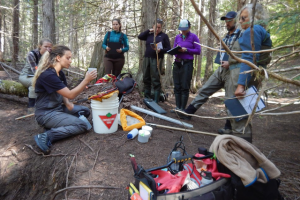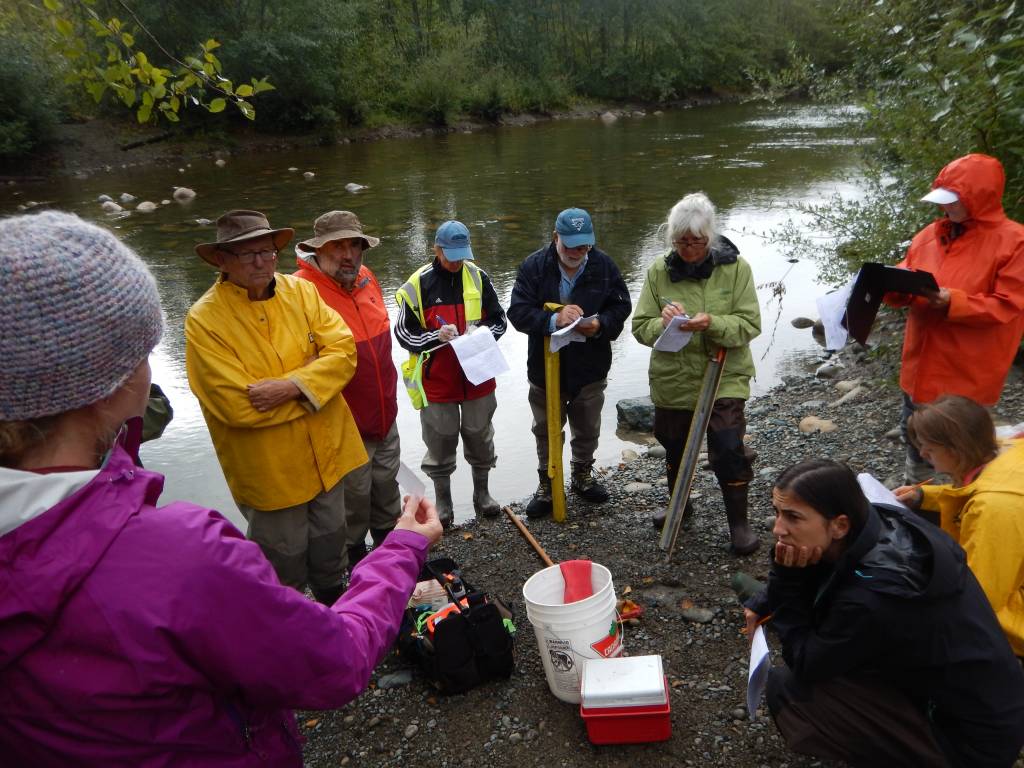Learn to monitor stream health: CABIN training in Nelson, July 17-18
| () |
We all want healthy streams. Streams are living systems that affect the water we drink, the food we eat, the well-being of fish and wildlife, and the economy through fishing and other outdoor recreation.
Assessing the health of a stream can be done by counting the number of insects living in it — specifically, benthic macroinvertebrates (the backboneless bugs that are generally visible to the naked eye that live on the bottom of streams).
In Canada, a national protocol called CABIN (Canadian Aquatic Biomonitoring Network) has been established that collects benthic macroinvertebrates and uses their counts as an indicator of a water body’s health.
Living Lakes Canada (LLC) is the only Canadian NGO trained by Environment and Climate Change Canada to train community groups, professionals, industry and First Nation communities in the CABIN methodology, which is the most widely used national protocol to assess the health of streams.
This summer, LLC will be holding a CABIN field practicum in Nelson, B.C. on July 17 and 18 that is open to the public.

Living Lakes Canada CABIN training in Nelson in 2017.
“Community-based water monitoring (CBM) is emerging across Canada as an untapped potential to help solve pressing challenges associated with watershed management,” said LLC Water Stewardship Lead Raegan Mallinson. “Living Lakes Canada trains citizen scientists in community-based monitoring because citizens are concerned and want to ensure that their lakes, rivers, wetlands and watersheds remain healthy and that their communities are climate resilient. They want to be involved in the decisions that affect their local watersheds including source water protection, drinking water quality, resource development and sustainable water and land use.”
Living Lakes Canada learns from experience in the field and through mentoring from Canada’s top water scientists to develop and deliver successful citizen science, community-based water monitoring initiatives. Indigenous communities have been monitoring or “watching the land and water” for generations by collecting observations combined with traditional knowledge passed on from Elders. Both indigenous and non-indigenous community-based water monitoring present enormous and cost-effective opportunities to empower communities to work collaboratively with governments and industry for holistic water management.
“The CABIN training program provides the knowledge and skills required to conduct a biomonitoring program to CABIN standards,” said Raegan.
Participants who receive CABIN training take part in a two-day CABIN field practicum that provides instruction for the standardized data collection techniques. Depending on the level of training that the participant chooses to undergo — from Field Technician to Program Manager — various modules are required to access and use the CABIN database. The CABIN database provides trainees with tools to store and manage their data and studies, and a suite of online analysis and reporting tools.
“Join us in the streams of the West Kootenay to learn how to create and carry out your own biomonitoring program to assess the health of your surrounding freshwater ecosystems,” said Raegan.
For more information on CABIN training levels, modules, cost and to register for LLC’s Nelson CABIN training, visit http://canadianriversinstitute.com/training/cabin/; and visit the Nelson CABIN training event page on Facebook here.

Living Lakes Canada CABIN training in Parksville in 2017.





